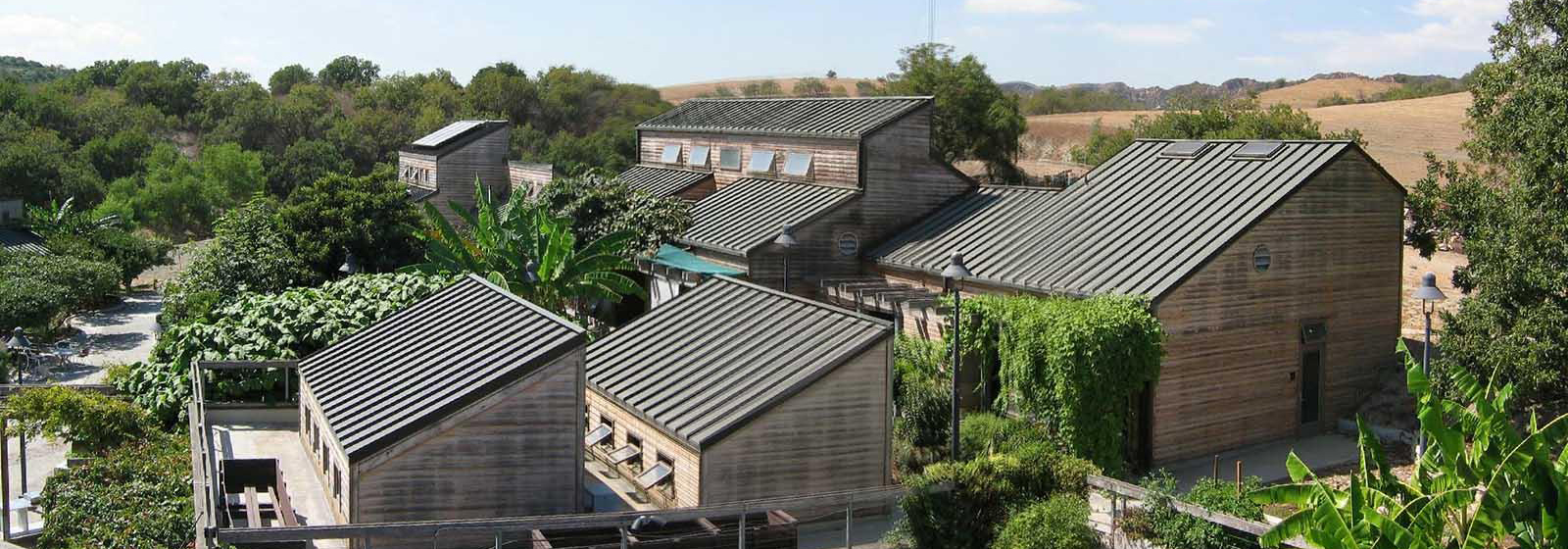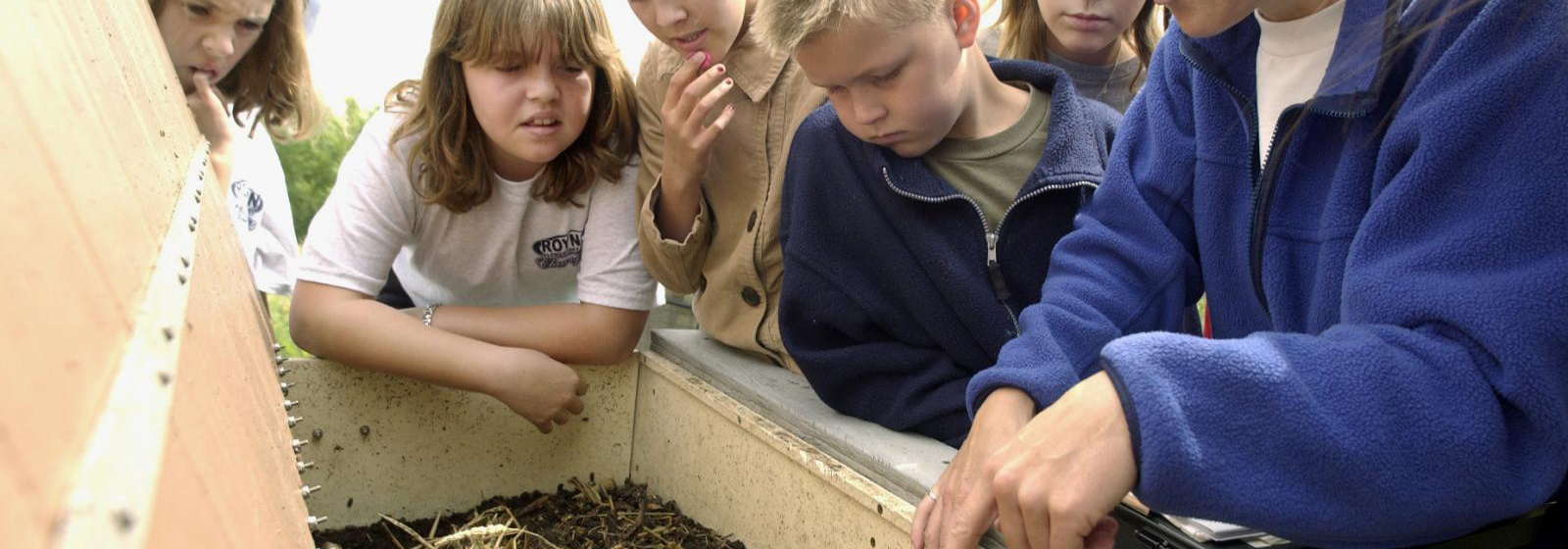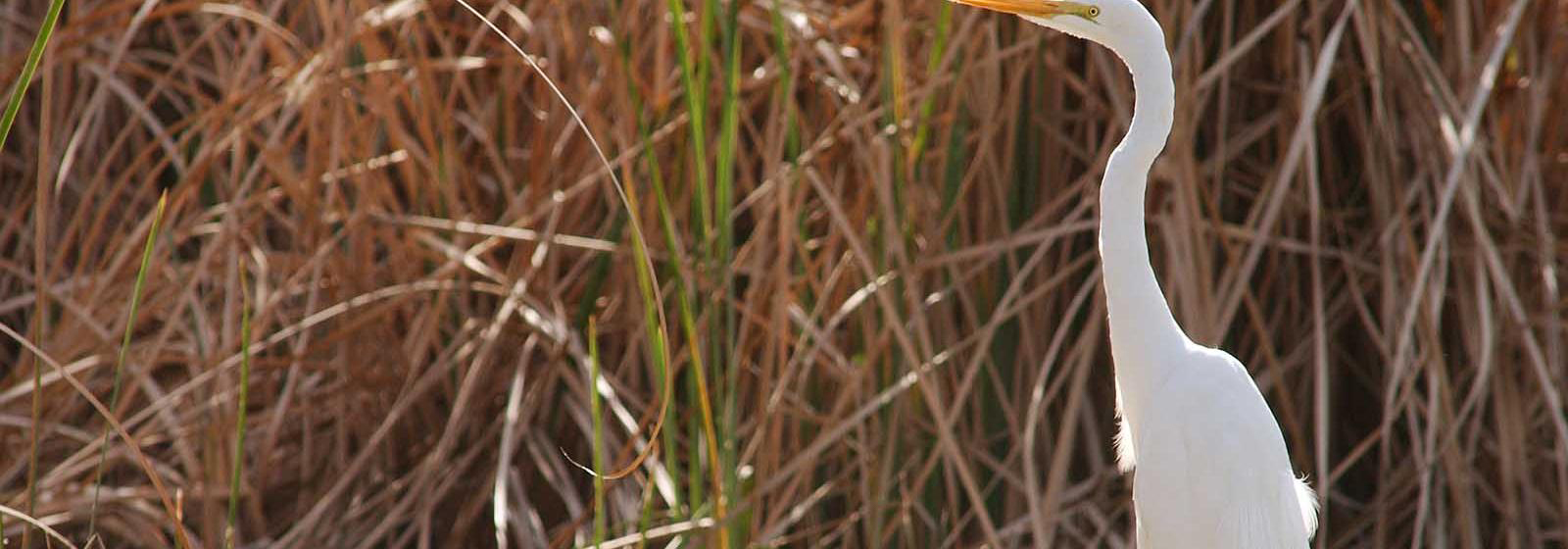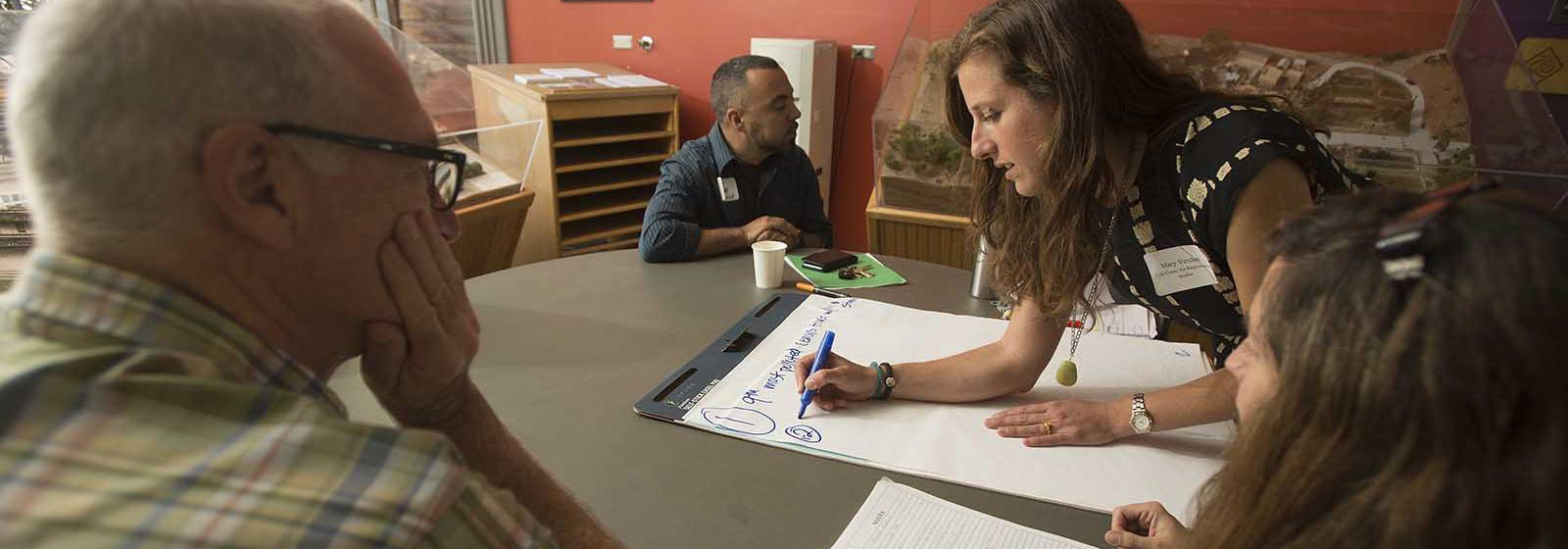Welcome
Since 1994, the faculty, staff and students of the Lyle Center have remained committed to a future in which all people live with dignity in safe, healthy, and sustainable environments. We believe this future is best achieved through the development of ecological, social and economic systems that regenerate, enabling communities to provide for the future as well as the present.
Located on 16 acres (6.5 ha) within the Cal Poly Pomona University campus, our vision is for the Lyle Center to be recognized for its collective impact toward a sustainable future , convening diverse groups of students, academic experts, policy makers and community members committed to catalyzing pro-environmental change.
The Lyle Center is administered by the College of Environmental Design, and offers a Master of Science in Regenerative Studies (MSRS) (PDF) as well as a minor program at the undergraduate level. Faculty are drawn from departments across campus, creating a unique interdisciplinary learning environment.
Graduate Program Admissions
Admissions to this program are on pause until 2026.
The Master of Science in Regenerative Studies (MSRS) was established in 2004 as a unique interdisciplinary program that prepares students to find successful solutions to environmental problems in the 21st century. The program consists of one year of full-time course work, featuring courses intended to ground students in concepts of regeneration, followed by the completion of an independent Master’s thesis or project that allows for in-depth investigation of an area of expertise.
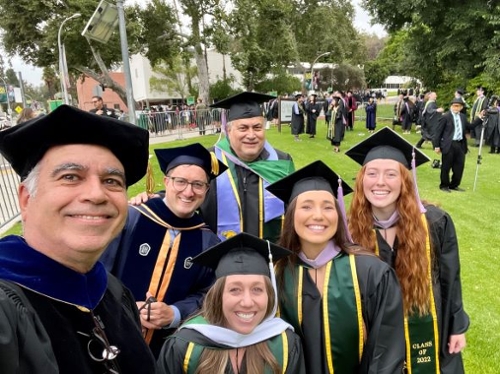
Take classes at the Lyle Center for students interested in learning about sustainability and regenerative theories on 16 acres of living laboratory.
Classes include many General Education course offerings for a learning experience off the beaten path, with the added bonus of doubling the value of up to 12 units that can be applied towards the Regenerative Studies Minor.
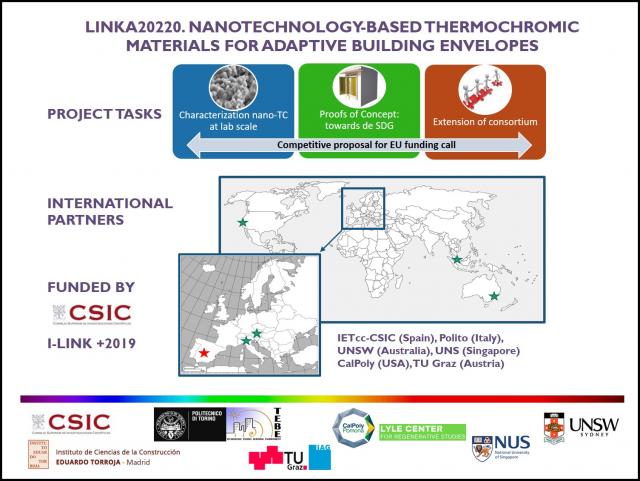
Weathering climate change with adaptive buildings
An international network was created to increase research in the area of thermochromic materials. This network should evolve into a wider multidisciplinary and multinational consortium for the development of nanotechnology-based thermochromic (nanoTC) materials. These adaptive building envelopes are a smart approach to improve the energy efficiency of buildings and reduce the environmental impact of urban areas. The network consortium includes six partners: Instituto de Ciencias de la Construction in Madrid, Spain, Politecnico di Torino in Italy, University of New South Wales in Sydney, Australia, National University of Singapore, TU Graz, Graz University of Technology in Austria and the Lyle Center for Regenerative Studies at Cal Poly Pomona. (Read more)

| Course No. | Course Name | Description |
|---|---|---|
| RS1110 | Introduction to Regenerative Studies (3 units) |
Understand the interaction between physical, biological and social systems essential to human life. How do these relationships shape how we live and sustain critical resources and safeguard our delicate ecosystem for future generations? |
| RS3010 | Life Support Processes (3 units) |
Understand the social context of complex physical and biological systems. These systems provide water, food, energy, shelter, atmosphere and functional landscapes that are a part of our everyday lives. |
| RS3020 | Global Regenerative Systems (3 units) |
What are the global effects of human activities in our pursuit of food, water, energy, shelter and waste sinks? Study the institutional factors that influence how regenerative practices are implemented as we face the challenge of our planet's limited resources. |
| RS3030 | Organization for Regenerative Practices (3 units) |
How do governments, businesses, communities and environmental groups effectively organize to advance pro-environmental change? Investigate organizing processes for regenerative studies; and examine cultural and institutional organizing at the global, multi-national, national, regional, local, family and individual levels. |
| RS4500 | Sustainable Communities (3 units) |
History and cross-cultural study of sustainable communities related to their built form. Learn how "intentional" communities are models of traditional and alternative patterns. How do economics and our laws enable us to experiment with our communities? |
offered fall & spring semesters. open to all majors!
General education classes are offered year-round at the Lyle Center. Skip the waitlists at other colleges and learn how sustainable design, social and physical and social sciences, engineering, and business and economics are united in our shared vision for a safe and healthy future for all.
